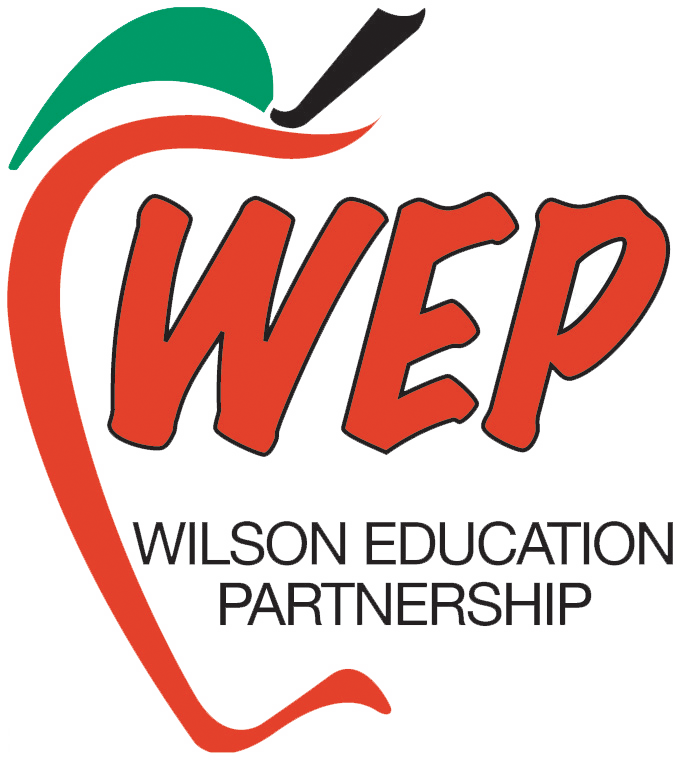In her 20 years as the Wilson Education Partnership’s executive director, Martha Vick has proven that a little investment can go a long way.
“We connect the community, primarily businesses, industries and organizations, to our schools,” said Vick. “We don’t raise gazillions of dollars every year, but we do a lot to connect and provide resources to the schools.”
In the spring, WEP was able to give nearly $8,000 to schools in Wilson County through a mini-grant program.
“Our new focus this year is supporting educators and doing college and career readiness initiatives,” said Vick. “We decided that if we created a pool of grant money, we could do both. It would be a way to get educators some extra dollars by supporting them, but we also asked them to focus on grants that were going to teach their students something new about college or careers.”
The money came from the WEP’s general operating budget, which, as a nonprofit, is raised through a variety of fundraisers and corporate contributions. It was then distributed to eight chosen educators with a creative idea to educate students about their options for the future with the cap for funds set at $1,000 each.
Hearne, Winstead, New Hope and Vinson-Bynum elementary school teachers were chosen to receive mini-grants, along with educators from Darden and Forest Hills middle schools, and Fike and Hunt high schools.
Two schools choose to focus on helping show students how to make and achieve future goals.
Hearne teacher Laura Nelson had fifth-grade students read “The Giver,” a novel that depicts a futuristic totalitarian society where jobs are not a choice, but an assignment. After reading the book, students explored the many career choices that are available to them and created visual displays of their goals.
Through researching careers and colleges available to them, Nelson said the students were able to get more excited about their own futures.
“This project gave my students a glimpse into the possibilities their future holds,” said Nelson. “My students have a much larger understanding of careers, college and life in general.”
Winstead teacher Joan Malone used grant funds to introduce professional skills to her school’s fifth-graders. Each boy received a tie and each girl received a dress scarf. They were taught how to properly tie and wear the new accessories. They also learned how to shake hands, maintain eye contact and deliver a professional greeting.
Students were responsible for keeping track of their own attendance, and learned how punctuality, self-image and appearance contribute to personal success.
“Our fifth-graders felt more confident and better prepared to transition into middle school,” said Malone. “The project allowed positive self-reflection and strengthened their awareness and understanding of the soft skills necessary for both school and workplace success.”
Fike High School’s Jean Hall used the funds to create a Career Center, where students can complete self-assessments, research jobs, learn about soft skills and register for Career Readiness programs.
Some schools chose to focus on particular subjects that can guide to students to more successful futures.
Vinson-Bynum used its grant funds to set up a new science, technology, engineering, arts and math, or STEAM, lab. Because the school serves families from 14 native countries, Principal Daniel Barnes said he has noticed that international parents in particular have shown a strong interest in the math and science instruction offered to their children.
“With this grant, we have been able to focus more instruction in (math and science,)” said Barnes. “We look forward to expanding the STEAM lab to create a new focus area for our entire school.”
Darden educators Russell Weber, Karen Bessey and Renee Olivieri also teamed up to purchase science equipment for hands-on labs.
New Hope teachers Carey Heiniger, Lisa May and Karen Prafka focused on the writing process when creating their Lego curriculum that used hands-on, problem-solving labs.
Suellen Greer at Hunt High School used funds to purchase college-level texts for her AP English classes to help them practice complex sentence-writing strategies.
“My highly competitive students enjoyed creating and sharing their master sentences,” said Greer.
Forest Hills’ media coordinator, Katherine Taylor, was recognized at the David Simon Excellence in Education Awards for her work with the grant funds. She organized a school-wide reading of the book “Mockingbird.” All students and teachers read the book, which features a young girl with Asperger’s syndrome who is learning to deal with the death of her brother following a school shooting. Themes within the book were explored across grade levels and subject areas. The author of the book, Katherine Erskine, also visited the school. Taylor said students and teachers are already asking what the next book they read as a school will be.
“We saw a lot of excitement the day we passed out the books to each student and allowed them to write their names on their books,” said Taylor.
The WEP is already in the planning stages for the mini-grant program for the 2016-17 school year. Vick said she hopes each year the program grows for the students’ benefit.
“When we can get out teachers excited and make them feel like they’re supported, because they have some extra resources to work with and do something creative, that enthusiasm spreads to the kids,” said Vick. “When I look at the scope of impact that many of these grants had— it wasn’t just one little classroom. Every student benefited from the investment that we made, because we helped them do a project they wanted to complete.”
Vick said she would like to raise $25,000 for the program this year, but it will all depend on where the money comes from.
